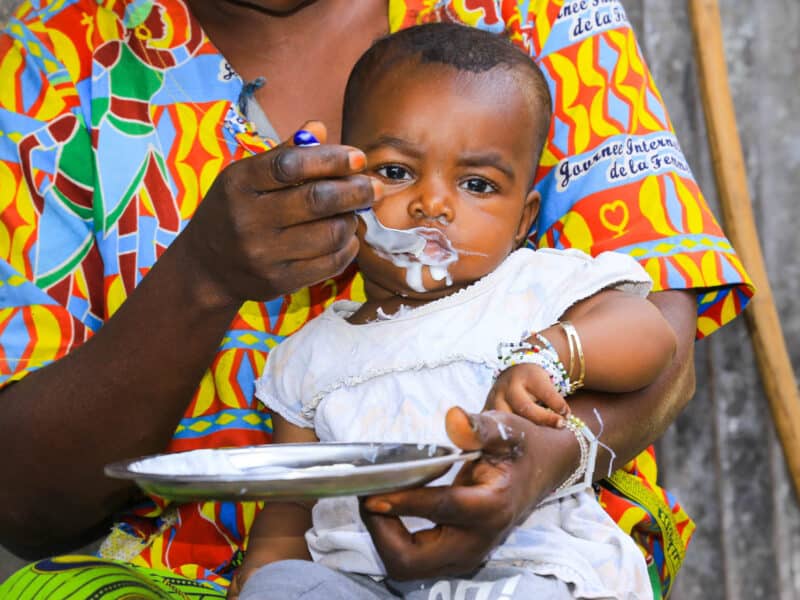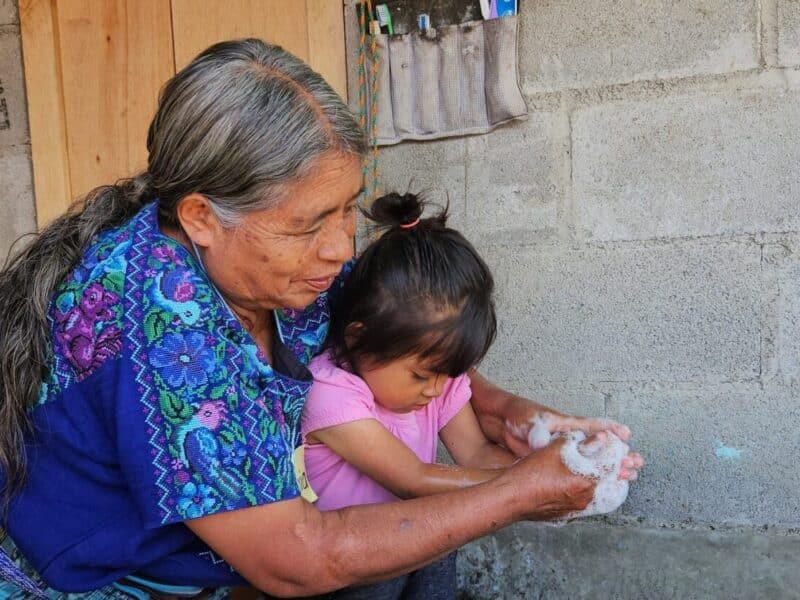During World Food Day, October 16, we reflect on the effect of the global food crisis on millions of the world’s most vulnerable people, especially pregnant women and young children, whose access to adequate food and social services are increasingly in peril.
Every year 3.5 million children under age five die from malnutrition-related causes and many millions more are affected. The first 1,000 days of life— the period from conception to age two—is the most critical developmental period for children. After age two, the effects of undernutrition on physical and mental development are largely irreversible, affecting educational success and income potential. It is critical that nutrition programs reach women and families during this key timeframe with appropriate nutrient-rich foods and information about breastfeeding, weaning and complementary foods which are necessary for a healthy start.
On World Food Day 2011, CCP is pleased to announce a new nutrition project that will assist vulnerable populations in Nepal.
Improving “Suaahara” (Good Nutrition) in Nepal
In Nepal, half of children under 5 years are stunted or chronically undernourished. For the same population, the acute malnutrition rate is 13 percent. In an effort to improve the nutritional status of women and children under two years of age, especially during those critical 1,000 days, CCP will provide communication support to the Suaahara project. Suaahara will work with communities, government and civil society organizations to provide women and their families with access to information and skills for better nutrition, hygiene and health practices. CCP’s communication initiatives will include demand creation for locally available nutritious foods through community mobilization and education-entertainment activities. This five-year USAID-funded initiative will work in 25 remote districts and is led by Save the Children.
Learn more about the Suaahara project.





